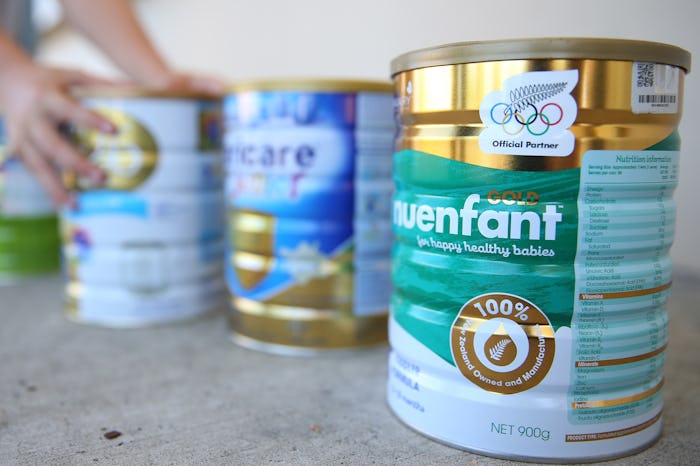Life

Will Medicaid Cover Your Baby's Formula?
Providing breast milk for a preemie can be challenge, but it’s one of the best way to provide nourishment that helps them stay healthy while they get older and stronger. This can be tricky for numerous reasons, but sometimes it’s because new mothers aren’t able to produce the breast milk their little one needs. That’s where donor breast milk comes in and low-income mothers in several states, most recently in New York, will be able to get this life-saving sustenance for their premature babies through Medicaid. It’s certainly a wonderful development in the health care budget, but what about after the baby comes home from the hospital and a mother is still unable to produce enough breast milk or chooses to formula-feed her baby? Does Medicaid also cover formula for low-income mothers?
The short answer: Yes, Medicaid technically covers the cost of infant formula. However, as with most insurance providers and government assisted programs, health care plans are complicated and vary state-by-state and patient-by-patient. Each state Medicaid program establishes its own criteria regarding coverage of nutritional products, including formula, and some state laws require insurance providers to cover certain types of medical food based on a child’s diagnosis from a doctor. So, it really depends on your location and your personal situation.
But typically, if you qualify for Medicaid, you could also qualify for Women, Infants and Children benefit (WIC), which requires state agencies to cover certain types of formula for low-income families. Under the program’s infant formula rebate system, states coordinate contracts with infant formula manufacturers, so the type and brand of formula varies.
"WIC State agencies agree to provide one brand of infant formula and in return the manufacturer gives the State agency a rebate for each can of infant formula purchased by WIC participants," the program writes on its website. "The brand of infant formula provided by WIC varies by State agency depending on which company has the rebate contract in a particular state."
In New York, for example, the WIC contract formulas include three types of Enfamil and Gerber Good Start Soy. Other WIC-covered formulas require medical documentation. Romper has reached out to a WIC spokesperson for further comment on the program's offerings and is awaiting a response.
If your baby requires a particular brand of formula and you're not sure if it's covered, speak directly with your state's Medicaid or WIC program and ask what steps you need to take in order to get it covered. Sometimes it requires a prescription, and if that's not possible, speak with your pediatrician about alternative options that are covered.
The cost of formula can add up quickly and it can be a financial hardship for families, but there are options out there to help foot the bill. It might take a few phone calls, internet searches, and chats with your doctor, but your feeding plan and your child's well-being is worth it.